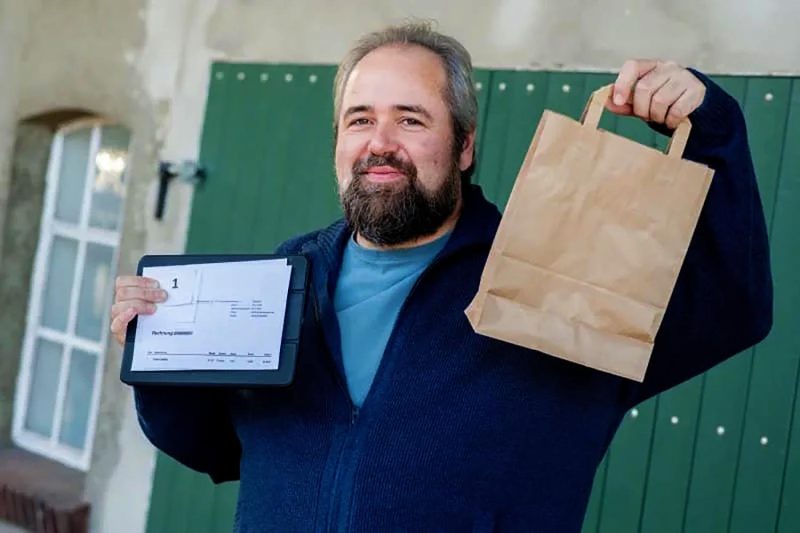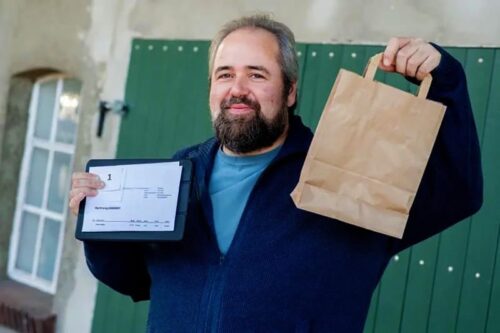The legal dispensing of cannabis via a cultivation association has taken place for the first time in the German municipality of Ganderkesee.
Cannabis Social Club Ganderkesee claims to be the first club in Germany to have carried out a legal cannabis harvest on behalf of members. Cannabis associations were a significant feature of the German cannabis legalisation bill, with the first licences issued in July 2024. A spokeswoman for the Federal Drug Commissioner said that no other club is known to have started harvesting earlier. However, she added that her department does not collect any official information about the situation of individual clubs.
Michael Jaskulewicz, the first member of the club to legally pick up a few grams of different varieties of cannabis described the experience as “an absolutely awesome feeling,” adding that he was able to pick up his order first as he was one of the association’s very first supporters.

Associations in Germany are allowed to have up to 500 members, grow and distribute cannabis on their behalf and provide a space for consumption. Members are allowed to collect and legally possess up to 25 grams at a time.
Club chair Daniel Keune said members came “from the heart of society,” with the age range extending from 18 to 70 years.
Employees and entrepreneurs alike were among the cannabis enthusiasts, said Keune.
Talking about his relationship with cannabis, Jaskulewicz said that he used to smoke weed back in the 1990s but had given up the habit after purchasing contaminated product from a street dealer.
“After that, I felt very dirty and thought I wouldn’t do it again,” he added.
Cannabis possession and consumption have been legal in Germany since April 1st. While adults are allowed to grow up to three plants at home, there has been no other way to obtain cannabis legally, leading to some speculation that the law change is encouraging the black market to thrive.
“Illegally traded cannabis still comes mainly from Morocco (hashish) and Spain (marijuana) and is transported to Germany by truck via France, Belgium and the Netherlands or is produced here in illegal indoor plantations,” the German Federal Criminal Police Office (BKA) said in a recent article to Politico.
As part of the April law change, a second ‘pillar’ of legislation promised to investigate the impact of legal, commercial dispensaries on public health, similar to ongoing trials across Switzerland.
Last week the German cities of Hanover and Frankfurt published ‘letters of intent’ to launch controlled cannabis sales to thousands of participants through new model projects, with harm reduction as a key focus.
The studies, set to run for five years, will mirror those already running in numerous Swiss cities. Similar to the neighbouring country’s pilot schemes, participants in Germany will have to be over 18 and be in good physical and mental health. In addition, they will be required to complete regular medical surveys and health checks, and attend mandatory discussion groups about their relationship with cannabis.
After just one year, the Swiss pilots have been reported as showing “positive results”. More than half of the study participants reported consuming cannabis at least four times a week, and yet the majority are in good health according to data collected as part of the pilot scheme.
“The individual advice on harm reduction and health promotion is particularly important. We are pleased that the free advice has been so well received,” said the Swiss pilot project manager Barbara Burri.
This story first appeared on leafie, view here
Author: Liam O’Dowd


